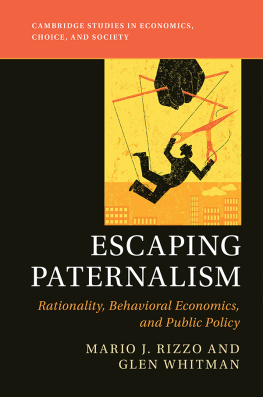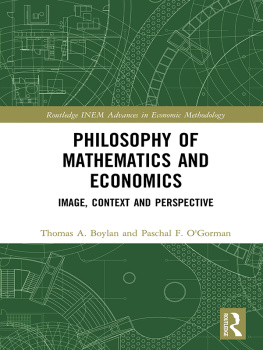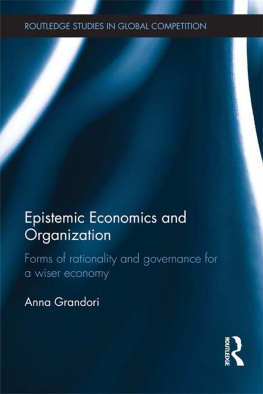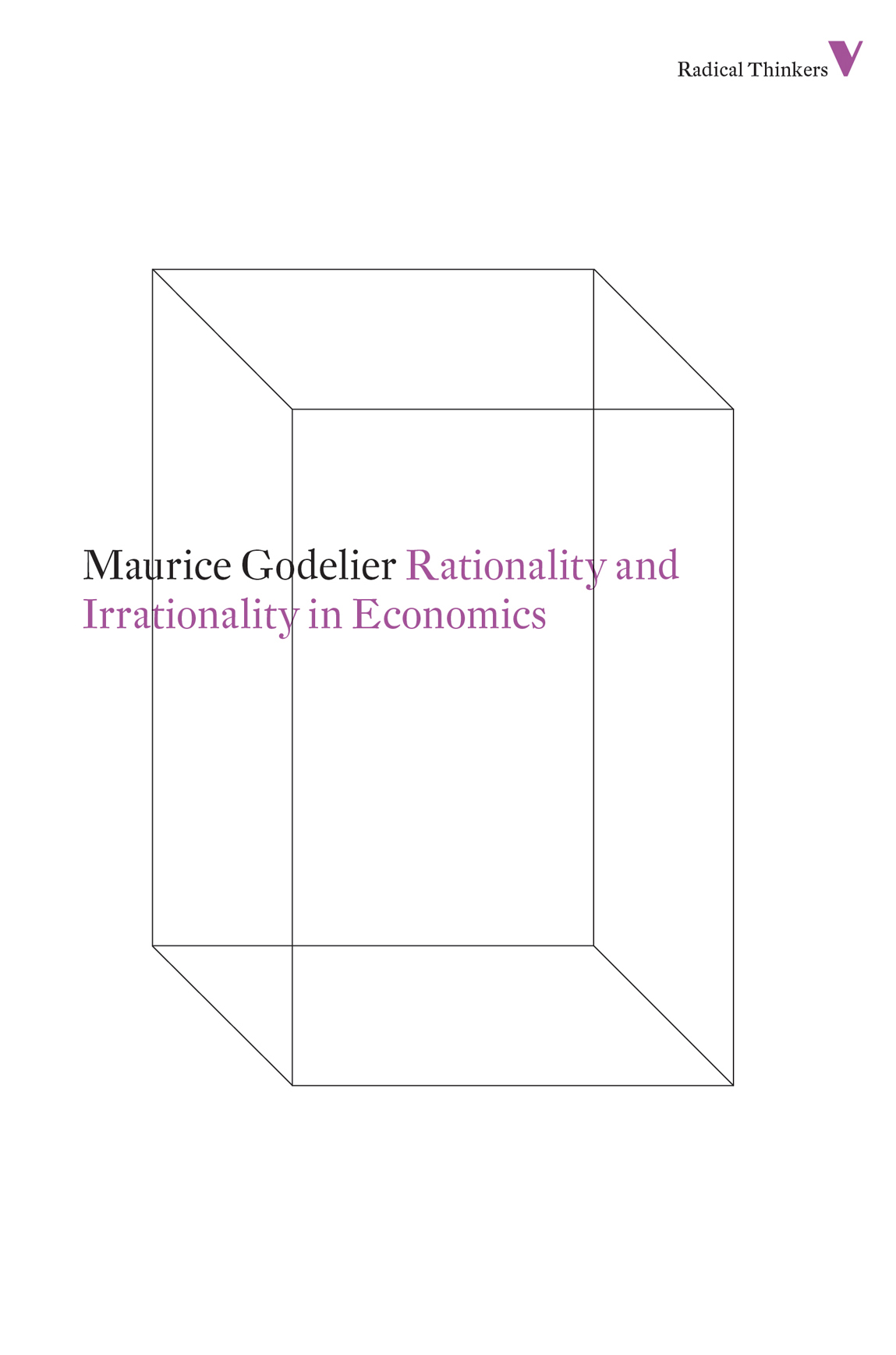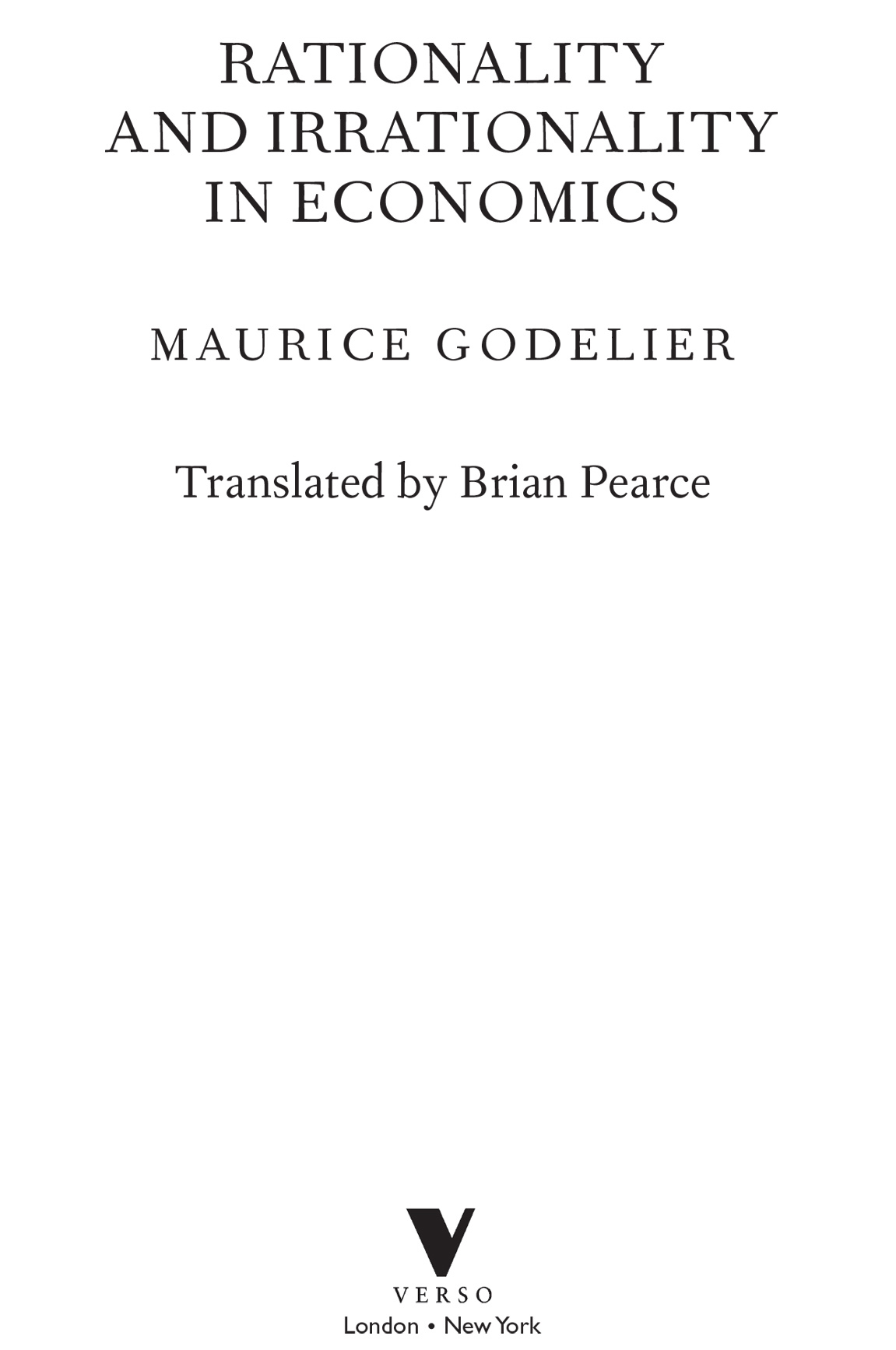Published by Verso 2012
Verso 2012
Published by New Left Books 1972
Translation Brian Pearce 1972
First published as Rationalit et irrationalit en conomie
Franois Maspero 1966
All rights reserved
The moral rights of the authors have been asserted
Verso
UK: 6 Meard Street, London W1F 0EG
US: 20 Jay Street, Suite 1010, Brooklyn, NY 11201
www.versobooks.com
Verso is the imprint of New Left Books
eBook ISBN: 978-1-78168-037-7
Trade Paperback ISBN: 978-1-78168-025-4
British Library Cataloguing in Publication Data
A catalogue record for this book is available from the British Library
Library of Congress Cataloging-in-Publication Data
A catalog record for this book is available from the Library of Congress
v3.1
Foreword to the English edition (1972)
Functionalism, Structuralism and Marxism
THE SCOPE OF THE QUESTION AND THE COURSES FOLLOWED
When this book was published in 1966 it offered an interim report on a task of research that had been begun in 1958, with the aim of finding the answer to two questions which are really only a single question: What is the rationality of the economic systems that appear and disappear throughout history in other words, what is their hidden logic and the underlying necessity for them to exist, or to have existed: and what are the conditions needed for a rational understanding of these systems in other words, for a fully-developed comparative economic science?
Here was a question that, though precise, led me into a field of research that seemed unlimited, being defined by no boundaries either de jure or de facto ; a question the vastness of which showed clearly enough that it had been advanced by a philosopher that is, by a mind given to focusing directly upon basic truths, concerned with the foundations of reality and of how we know them. At the same time, however and here the philosopher who put forward this huge question showed that he was no longer a philosopher of the traditional sort, but a Marxist the answer to this question was not sought in philosophy or by philosophical means , but in and through examining the knowledge accumulated by the sciences, and a variety of theoretical methods. Hence the strange journey from philosophy to economics, and then to anthropology, the stages of which are indicated by the texts assembled in this book.
I thus had twice to apply myself to learning a new theoretical method, and to endeavouring to find out if the question of rationality still meant something, and what the new forms were in which it presented itself. If, however, it proved necessary to go beyond political economy to anthropology, this was because the former, as it exists today, restricts itself to analysing two contemporary economic systems, and for it the question of economic rationality leads ineluctably to the assertion, increasingly supported by proofs, of the superiority of one system over the other, and the necessity for one of them (this one or that) to vanquish the other in the course of historical development. I therefore had to subject to critical examination the evidence adduced by the advocates of each system and to seek the conditions needed if this evidence was to contribute scientific and not ideological proof.
In this search for the epistemological conditions of a rigorous proof, one conclusion became obvious at an early stage, namely, that the question of the rationality of a system means primarily the question of the historical necessity for its existence in other words, in order to think out this question one has to construct the theory of the conditions for the systems appearance and development, something that is usually excluded from, or kept outside, the field of research of political economy and left to the historians of economic life. A second conclusion emerges, as an extension of the first: the conditions for the rise, functioning and evolution of any system are twofold, some belonging to the sphere of mens intentional activity, while others, of more decisive importance, give expression to the unintentional properties inherent in social relations, properties that do not belong to mens consciousness, having neither their origin nor their basis in that sphere, and that are latent with the possibility of transforming these social relations.
If, however, economic and social systems are mutually contradictory, and if each of them develops and changes and eventually vanishes from history, this is because no system exists or can reproduce itself elsewhere than within definite limits , by way of transformations that are compatible with the unintentional properties of its inner structures these limits being merely the ways in which these unintentional properties, and the relations of functional compatibility and incompatibility determined by them, are manifested. It was therefore necessary to bring these concepts of compatibility, incompatibility and limits into relation with the concept of contradiction and the concepts of systems-theory and cybernetics. This was how I started on my investigation of the concepts of correspondence and contradiction between structures, and my criticism of ideas derived either from Hegel or from Marx as he has been misrepresented by dogmatic Marxism.
The ultimate question still stood, however: is there an ultimate reason, an ultimate basis for the transformations that economic systems undergo, transformations that are governed by the relations of compatibility and incompatibility between the structures composing these systems? And since (unless we are to assume that history is given meaning from outside itself and is driven by some a priori purpose) this basis has to be looked for within the various types of relations that obtain among men, the question then becomes: which, among these relations, are the ones that bear primary responsibility for the major transformations that occur in the history of mankind, determining them in the last analysis ? Among the possible answers to this question, we know the one offered by Marx: the relations that men form among themselves in order to carry out, and in the process of carrying out, the production of the material conditions of their existence determine, in the last analysis, the relations of compatibility and incompatibility between all levels of social life and, therefore, it is the major transformations that take place in the material conditions of their existence that determine, in the last analysis, the outstanding transformations that occur in the forms and functions of the other levels of social life (political, ideological, etc.).
There seemed, however, to be an unavoidable objection to this answer offered by Marx. How could this hypothesis be reconciled with the fact for example, that within many primitive societies it is relations of kinship between men that dominate social organization (Radcliffe-Brown, Evans-Pritchard), or that religious relations seem to dominate Indian society, dividing men into a hierarchy of castes in accordance with an ideology of purity and impurity (Louis Dumont)?
Thus, unless facts were to be dogmatically denied and treated as hallucinations, the Marxist problematic in the sphere of economic and social science, concerned with accounting for the existence and variety of societies and their history, became: how are we to conceive the relations between the determining structure and the dominant one, and what determining power in economic relations is it that dictates that there shall be dominance by kinship-relations or by politico-religious relations? This question could not be answered, or even asked, by dogmatic Marxism and the other forms of that vulgar materialism to which dogmatic Marxism belongs, even though it denies the affinity. For vulgar materialism, the economy, which it reduces to the relations between technology and environment, produces the given society, giving rise to it as an epiphenomenon. This means refusing to see the irreducible differences between the levels and structures of social life, the reason for the relative autonomy with which they operate, and reducing all levels to so many functions, either apparent or concealed, of economic activity. One example will suffice to show the dead-end that vulgar materialism plunges into, thus enabling various idealist theories of society and history to triumph over its helplessness. In kinship-relations, whatever form they may take, there is an element that can never be reduced to a mere economic relation or deduced exclusively from such a relation. This is the relation between individuals of opposite sexes who cooperate, in a socially regulated relationship, namely, marriage, to ensure the biological reproduction of society. Clearly, it depends on definite conditions of the production of material existence whether the division between the sexes is or is not the dominant form of the division of labour, and whether it is relations of consanguinity within a group or marriage-relations between groups that constitute the means of direct cooperation in production or indirect cooperation in the circulation of goods: but, from the outset, kinship relations are not reduced to the effecting of these functions alone, and for this reason it is not possible simply to deduce then from the latter. It therefore seems clear to me that only if we radically reject vulgar materialism can we hope to tackle correctly the task of analysing the relations between determination and dominance, and so to establish, so far as some societies are concerned, the working of the structural causality of their various modes of production in relation to their organization and evolution.


